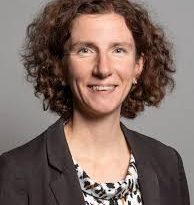Luke Hall – 2020 Statement on the Troubled Families Annual Report
Below is the text of the statement made by Luke Hall, the Parliamentary Under-Secretary of State for Housing, Communities and Local Government, in the House of Commons on 3 June 2020.
As required by the Welfare Reform and Work Act 2016, section 3(1), today my Department has published the fourth annual report, setting out how the Troubled Families Programme (2015-20) has been supporting our most disadvantaged families who face multiple and complex problems. We are laying this report today and will place a copy in the House of Commons Library. There has been a slight delay to the publication of the report, due on 31 March, as my Department focused on the emergency response to the covid-19 pandemic.
The Troubled Families Programme has been at the heart of our ambition to strengthen families and improve their futures since 2015. This year’s annual report details the programme’s performance for the period up to the end of March 2020, outlines the changes introduced for the 20-21 financial year to allow more families to be eligible for support, and clarifies how their progress towards outcomes will be measured. The report was drafted before the covid-19 pandemic so does not reflect the ongoing response from local government to support families during this unprecedented time.
Improving families’ lives: fourth annual report of the Troubled Families Programme 2019-20 details how the programme is driving a profound shift in the way that local services respond to entrenched problems and support our most disadvantaged families. Assigning a single key worker to each family, backed by multi-agency partners and co-ordinated data, this joined up “wrap-around” support works with whole families to tackle the range of issues they face.
Over the lifetime of the programme, local authorities have supported 350,105 families to achieve successful outcomes, including 30,000 adults who were helped into sustained employment, although the programme has worked with many more families. These families faced multiple and complex problems including a combination of crime, truancy, neglect, antisocial behaviour, domestic abuse, poor mental health, worklessness and financial exclusion. Every successful family outcome represents a family’s life changed for the better—a considerable achievement for the families and the local authorities supporting them.
Analysis to track family outcomes over time, and case study research, indicates that the programme delivered successful outcomes by intervening early to prevent escalation to children’s social care. Analysis found that for every £1 spent on the programme it delivers £2.28 of economic benefits (includes economic, social and fiscal benefits) and £1.51 of fiscal benefits (only budgetary impacts on services).
Analysis also suggests that the programme is reducing the probability of future interaction with the criminal justice system, and the severity of offending, for adults and juveniles who had been convicted or given a custodial sentence before they joined the programme.
The Troubled Families Programme has received new investment to extend the programme for an additional year. The additional Government funding of £165 million will enable the current programme to continue until the end of 2020-21.
The refreshed financial framework for 2020-21 was published on 14 May 2020 and sets out the expanded eligibility criteria and an explanation of the way in which local authorities should identify and support families using a range of indicators.
“Improving families’ lives: fourth annual report of the Troubled Families Programme 2019-2020” is accompanied by a range of publications that evaluate the programme’s progress which can be accessed at: www.gov.uk.
These are:
Analysis of national and local data sets: part five.
Staff Surveys—Troubled Families Co-ordinators: part four.
Staff Surveys—Troubled Families Keyworkers: part four.
Staff Surveys—Troubled Families Employment Advisors: part four.
Case Study Research: part four.
Family Survey additional analysis.


